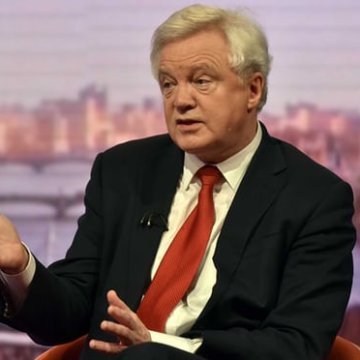- About
- Topics
- Picks
- Audio
- Story
- In-Depth
- Opinion
- News
- Donate
- Signup for our newsletterOur Editors' Best Picks.Send
Read, Debate: Engage.
| located: | United Kingdom, Germany, France |
|---|---|
| editor: | Gurmeet Singh |
Brexit very quickly became a farce after the vote in summer 2016. There were several months of obfuscation from the British Government, where it was unclear if the process of leaving the EU would be initiated. Then, when Article 50 was finally triggered, and the round of talks between the British and the European teams began, it emerged that the UK had no clear vision of the terms it wanted from the EU.
Last week, David Davis, the UK's Brexit Secretary, revealed that the Government had not conducted a single impact study for any of the major industries or sectors of the economy for Brexit – even though in Parliament, he had indicated that such studies existed. Finally, on Friday Theresa May appeared to have conceded to EU demands (on the Irish border), and talks looked set to go ahead.
However, the rejoicing at May's victory was (very) short lived. Senior Conservatives and commentators realised the extent of May's capitulation: she conceded to all EU demands, and gained nothing in return. The Irish border dispute was settled in a way amenable to the EU; European citizens in the UK would have their rights protected, initially by the European courts, and later with a special connection by the UK court and the EU. Britain would pay the EU up to £50 billion for the pleasure of leaving.
As a response, David Davis went against his own Prime Minister and initiated a quarrel with the Irish government, speculated to be politically motivated, to delay the process of moving on to the next stage of talks with the EU. The reason? The enormous settlement bill, and the inability of the UK to determine the rights of the 3 million EU citizens in the UK.
Senior officials in the cabinet have been said to find the continued involvement of the courts of human rights in these EU citizens' lives worrying – why can't the UK courts decide their fate? Well, you can see why Conservatives would be worried: if human rights continue to play a major factor in the lives of EU citizens, then that makes extradition harder, as opposed to say, a first response. What's more, if the European courts continue to have a say here, then perhaps the UK will be forced to continue abiding by the rules of the Dublin acts, protecting the rights of refugees and asylum seekers, something that would be intolerable to those in power.
The UK is willing to gamble the peace and prosperity of its nation for the sake of not upholding human rights, that has become evident on many occasions during this process. Only time will tell if the UK will become better for it.
Image: David Davis, UK Brexit secretary
